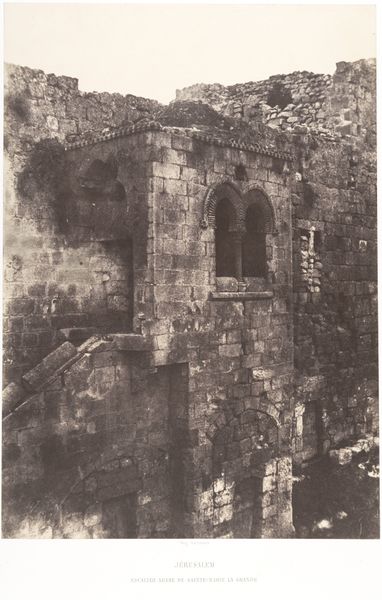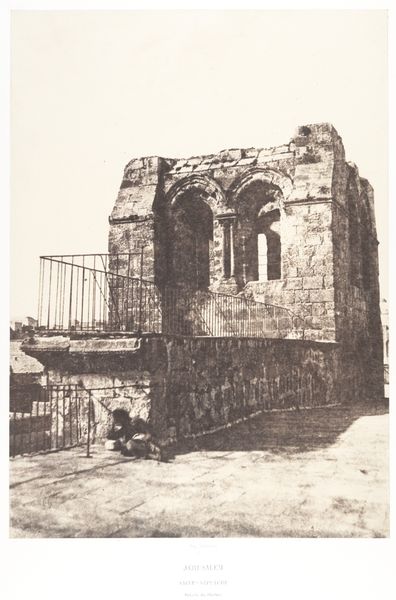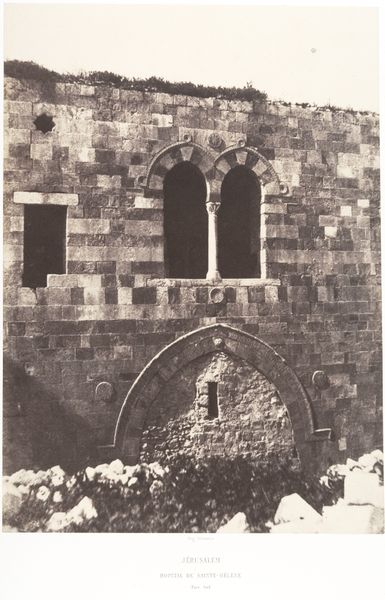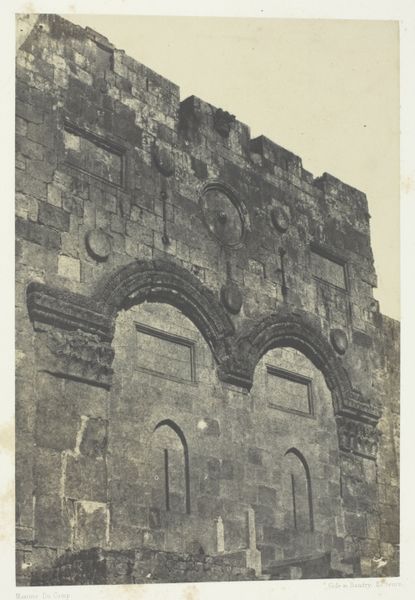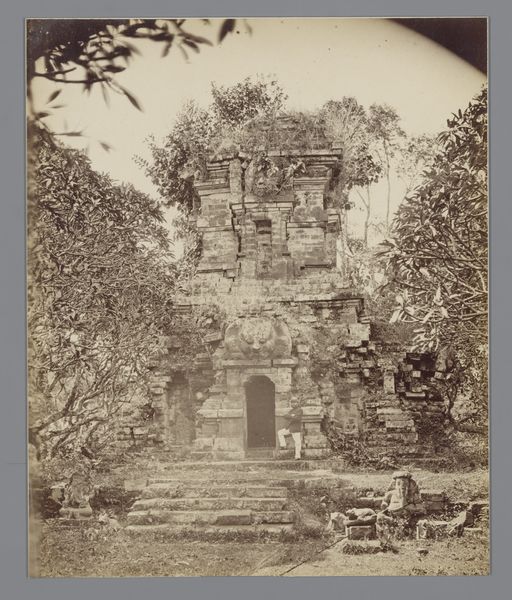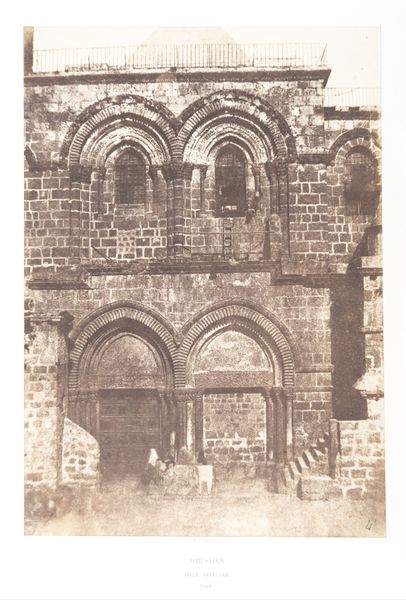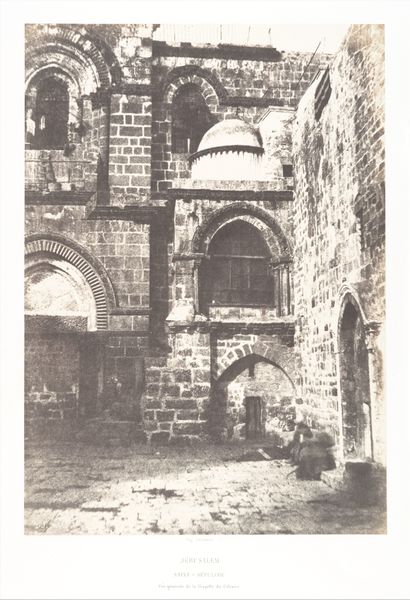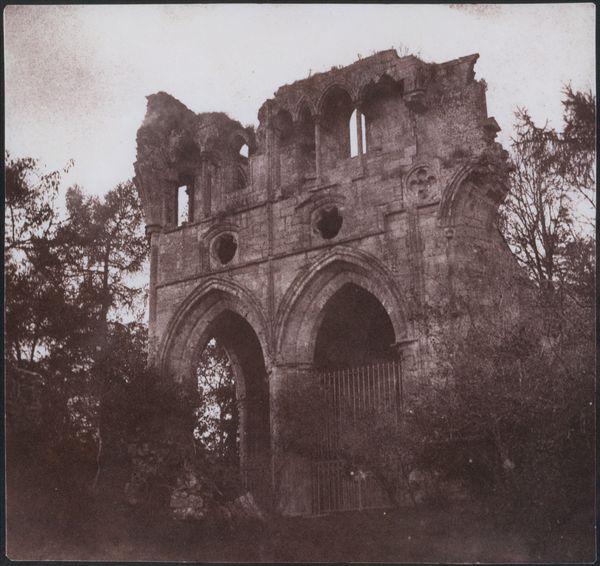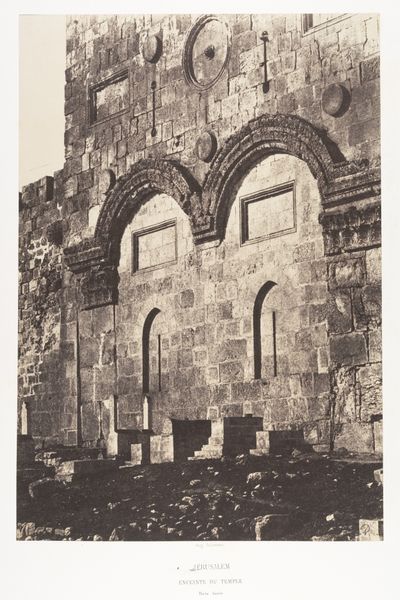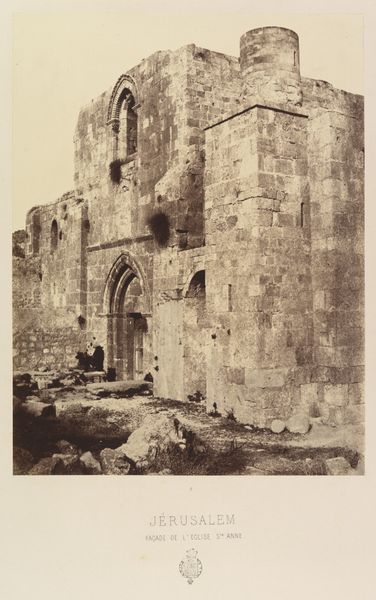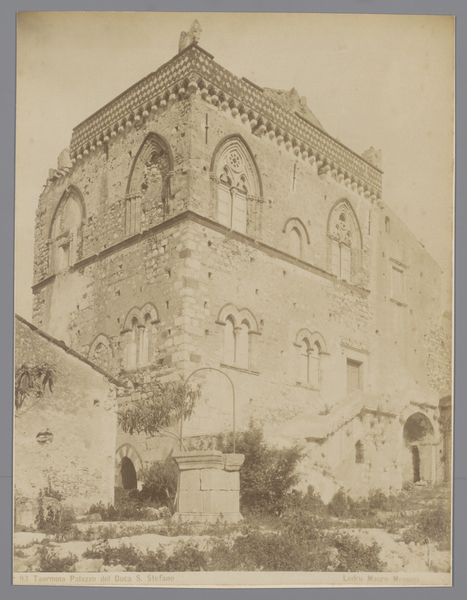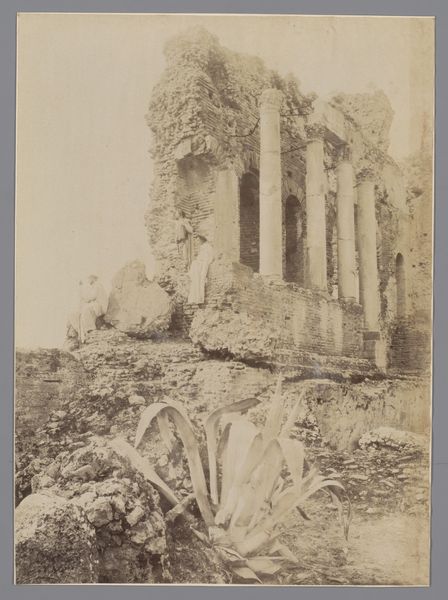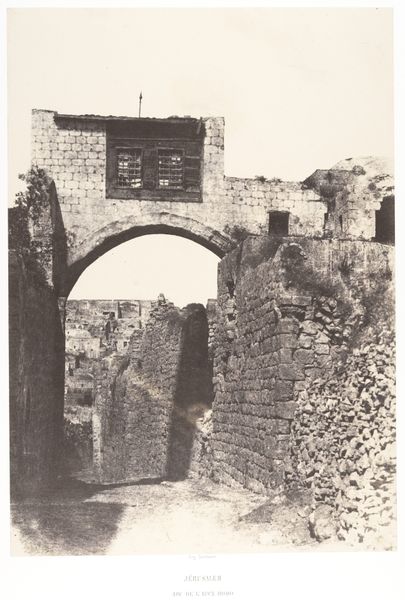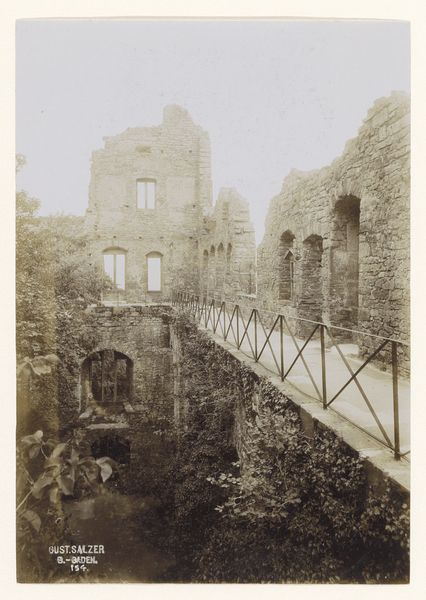
print, paper, photography, site-specific, gelatin-silver-print, architecture
#
photo restoration
# print
#
landscape
#
paper
#
photography
#
romanesque
#
site-specific
#
gelatin-silver-print
#
paper medium
#
architecture
Dimensions: height 144 mm, width 103 mm
Copyright: Rijks Museum: Open Domain
Giorgio Sommer made this albumen print of a ruin in Taormina, Italy. In the 19th century, photography emerged as a powerful tool, not just for documentation, but for shaping perceptions of culture and history. Sommer's choice of subject speaks to the romantic fascination with ruins, a theme which captured the imagination of European artists and intellectuals. This aesthetic movement reflected a broader interest in the past, fueled by archaeological discoveries and a growing sense of national identity. Sommer was operating in a market driven by tourism. His images catered to the desires of travelers seeking picturesque views and historical encounters. The very act of photographing, collecting, and displaying images like these contributed to the construction of a visual archive, reinforcing certain narratives about Italy's past and present. As historians, we can delve deeper, exploring the social and economic contexts that shaped artistic production. Examining travelogues, guidebooks, and exhibition catalogues, we can understand how the image was originally received. The meaning of art is always contingent on its social and institutional context.
Comments
No comments
Be the first to comment and join the conversation on the ultimate creative platform.
